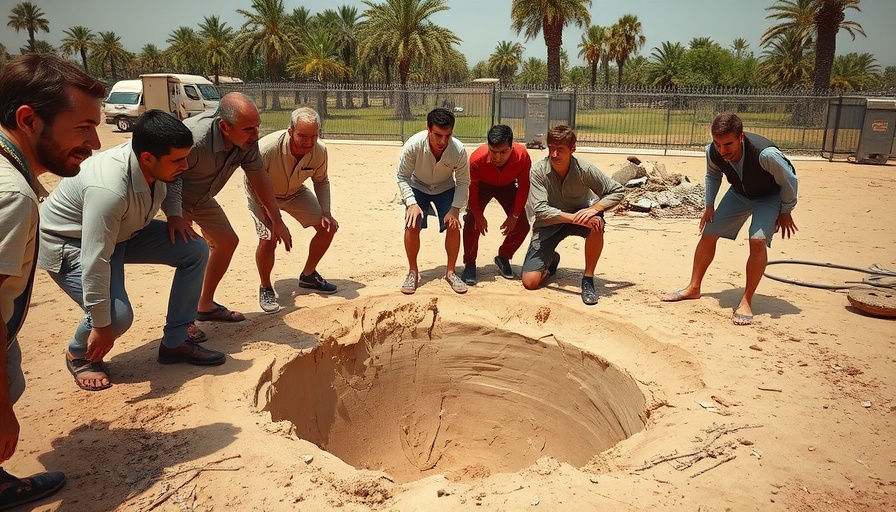
Understanding the Controversial Strikes on Hospitals in Gaza
On May 14, 2025, Israeli airstrikes targeted the European Gaza Hospital complex in a bid to eliminate a key Hamas leader, an action that reignited the debate over Israel's military operations in civilian areas, particularly hospitals. The attack resulted in the death of at least six individuals and significant structural damage to the hospital, highlighting a troubling trend in the ongoing conflict that has severely affected Gaza's health infrastructure.
Why Are Hospitals Being Targeted?
The Israeli military has defended its actions, citing intelligence that suggests Hamas used medical facilities as cover for military operations. Specifically, Israeli officials stated that the aim was to strike a Hamas command center situated beneath the hospital. This justification, however, raises ethical questions about the implications of such operations on civilian lives and healthcare services.
The Human Impact of Conflict on Healthcare
The ongoing conflict has decimated Gaza’s already fragile health sector. Even before this latest strike, the situation was dire, with medical facilities overstretched and under-resourced. The European Gaza Hospital’s director, Imad al-Hout, described the aftermath of the attack as disastrous, with vital infrastructure damaged, cutting off water supply and rendering the facility inoperable. With around 200 patients needing evacuation, the urgency of medical care in warfare is starkly apparent.
International Reactions and Consequences
International bodies, including various aid organizations and U.N. investigations, have criticized Israel for what they describe as targeted attacks on medical facilities. Reports have surfaced accusing Israel of intent to destroy Gaza’s health infrastructure, further complicating humanitarian efforts in the region. The Turkish Red Crescent, highlighted in a recent statement, emphasized the grave humanitarian cost of such military strategies.
A Palestinian Perspective
From the Palestinian viewpoint, these strikes represent not just medical attacks but a broader assault on their existence and rights. Hospital staff and patients become symbols of resistance but also tragically exemplify the human toll in conflict zones. Eyewitness accounts from the aftermath reflect a community grappling with loss, fear, and uncertainty.
Citing an Example: The Role of Hospitals in Warfare
Strikes on medical facilities are not unique to this conflict. Historical context shows that in many wars, hospitals have been caught in the crossfire—often a consequence of combatants using civilian spaces for military ends. In World War II, for instance, hospitals were attacked despite international laws designed to protect them, leading to severe ramifications for civilian health. Comparing past and present situations emphasizes the crucial need for adherence to ethical standards even in warfare.
The Future: What Lies Ahead?
The ongoing conflict raises concerns and questions about the future capabilities of Gaza's healthcare system. With continuous airstrikes causing direct harm to medical facilities, experts warn that an already struggling health sector faces collapse. There is a pressing need for international intervention to safeguard medical infrastructure and ensure that humanitarian assistance reaches those in most need.
Why This Matters: A Call for Awareness
The situation in Gaza underscores the importance of compassion and awareness in times of conflict. For readers, particularly those in San Francisco where diverse communities may be affected by global events, understanding these dynamics fosters empathy and solidarity. Knowledge of these events prompts action, urging individuals to support humanitarian initiatives and raise awareness about the importance of protecting healthcare amid conflict.
Conclusion: The Importance of Advocacy and Support
As the world watches events unfold in Gaza, individuals are encouraged to reflect on their role in advocating for peace and supporting humanitarian efforts. Increasing awareness about the consequences of military strategy on healthcare could cultivate a more informed populace that can advocate for change. The protection of medical facilities should be a priority, saving lives and preserving the dignity of healthcare for all.
 Add Row
Add Row  Add
Add 




Write A Comment